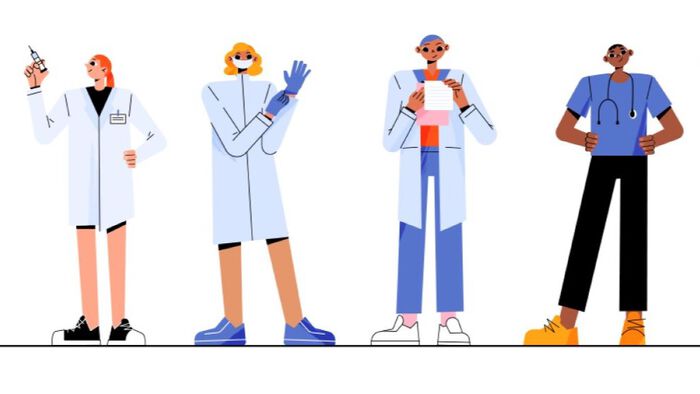Catastrophic inequities in access to products to fight COVID-19 such as vaccines, treatments and tests highlighted the barriers that intellectual property rights (IPRs) present to access to life-saving products, and stimulated various attempts to overcome these, including a proposed temporary waiver of IPRs. But even in a one-in-a-hundred-year global health emergency wreaking havoc around the globe, these attempts met with little success.
Given these failures, what avenues are available to create the conditions to alleviate IPR barriers in future pandemics?
Disappointing outcomes from negotiations at the World Trade Organization
In October 2020, a proposal was put to the World Trade Organization (WTO) by India and South Africa for a temporary waiver of certain provisions in the Agreement on Trade-Related Aspects of Intellectual Property Rights (TRIPS) for COVID-19 health products and technologies. The comprehensive waiver envisaged by its sponsors would have covered all types of health products and technologies needed to respond to pandemics and all relevant IPRs, including not just patents but also undisclosed information such as trade secrets.
But three years on, little progress has been made on waiving IPRs in any meaningful way, due to opposition by some developed countries. In this time, almost seven million people have died as a direct result of COVID-19, with many millions more when excess deaths are taken into account. Retrospective modelling suggests that around 1.3 million lives were lost as a result of vaccine inequity by the end of 2021.
A WTO Ministerial Decision finally approved in June 2022 after 20 months of intense negotiations over the waiver proposal covers only vaccine patents, excluding other products and technologies and other types of IPRs such as trade secrets, which pose formidable obstacles to access. And instead of waiving IPRs, it merely slightly eases the exporting of vaccines from one developing country to another. More than fifteen months later, it remains unused. A deadline to expand the scope of the Decision to cover treatments and diagnostic tests has been missed, with battle lines between developed and developing countries still firmly drawn at the WTO.
Potential ways forward
Negotiations underway at the World Health Assembly over a new legal instrument for pandemic prevention, preparedness and response (the ‘pandemic accord’) now present the best opportunity to generate the global solidarity to address IPR barriers in future pandemics. It will be vitally important for the pandemic accord to include a commitment to waiving IPRs during future pandemics, as well as supporting Member States’ use of their existing legal rights under the TRIPS Agreement to authorise the manufacture of patented products without the permission of the patent owner (compulsory licensing).
A Zero Draft of the pandemic accord released in February 2023 included the following proposed text addressing IPR waivers (Article 7, para 4):
In the event of a pandemic, the Parties:
-
- will take appropriate measures to support time-bound waivers of intellectual property rights that can accelerate or scale up manufacturing of pandemic-related products during a pandemic, to the extent necessary to increase the availability and adequacy of affordable pandemic-related products;
While the legal language of this and other provisions is insufficiently strong to deliver concrete outcomes (the words “take appropriate measures to support” and “to the extent necessary” each dilute the commitment), including this text would provide a strong signal about the acceptability and importance of waiving IPRs during pandemics.
However, a “Bureau’s text” tabled in June 2023 showed a further retreat from concrete commitments. On IPR waivers, Article 11 of the Bureau’s Text provided two options, one of which involved entirely removing any reference to waivers from the accord.
The Bureau’s Text was not accepted as the basis for negotiations, and another text is due to be publicly released on 30 October. An advanced unedited copy of this negotiating text (dated 16 October) was posted online by Health Policy Watch.
Encouragingly, this first negotiating text retains text addressing IP waivers. Article 11, paragraph 3 states that during pandemics, each Party shall:
-
- commit to agree upon, within the framework of relevant institutions, time-bound waivers of intellectual property rights to accelerate or scale up the manufacturing of pandemic-related products during a pandemic, to the extent necessary to increase the availability and adequacy of affordable pandemic-related products;
However, the commitment is weakened by the phrases “within the framework of relevant institutions” and “to the extent necessary”. And the fate of the waiver clause as negotiations move toward the May 2024 deadline remains unclear, with Germany’s Health Minister indicating the country will not agree to a treaty that limits IPRs and the pharmaceutical industry also strongly opposed. The direction in which the negotiations appear to be moving overall is towards voluntary measures requiring the cooperation of the pharmaceutical industry, instead of states taking the wheel.
An expansion of the WTO Ministerial Decision to cover COVID-19 treatments and tests is still greatly needed, as many developing countries continue to lack sufficient access to these products. Ultimately, waivers of TRIPS rules must be put into effect at the WTO, so it is worth persevering with trying to set a better precedent for COVID-19 products than the “sliver of a waiver” the WTO has so far delivered.
Due to their political complexity and embedded power asymmetries, global negotiations may not deliver the outcomes civil society organisations and developing countries are hoping for. Effort should also be invested in regional capacity building and collaboration, and national initiatives such as reforming compulsory licensing mechanisms to ensure they are fit for purpose.
As the emergency phase of the COVID-19 pandemic fades from our collective consciousness, the political will to ensure the failures of the COVID-19 response are not repeated in future pandemics is also fading. It will be vital to secure agreement on commitments and mechanisms to prevent these failures from being repeated before the attention given to pandemic preparedness and response is completely overtaken by other crises demanding governments’ attention.





